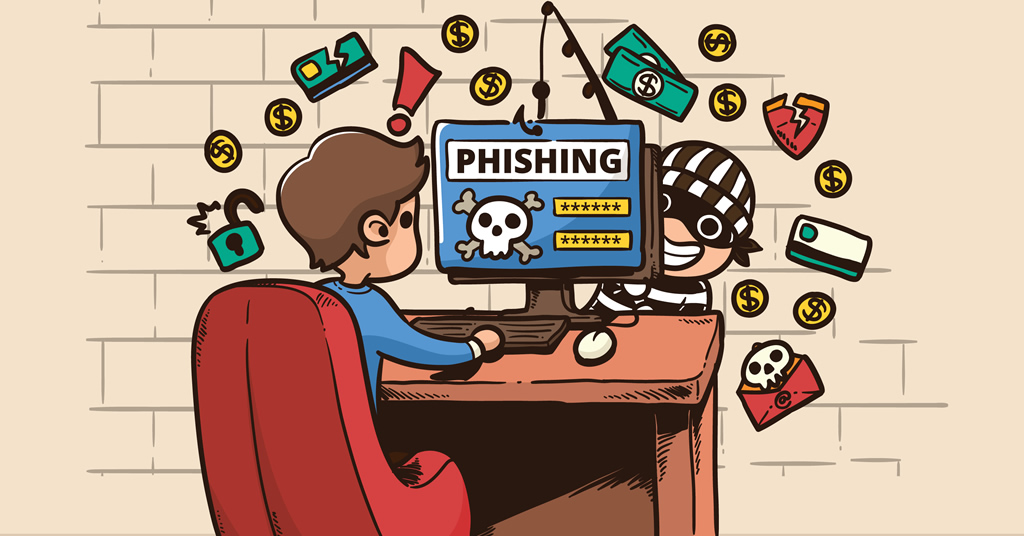Posts Tagged ‘cybercriminals’
If you own a small business, your business is a target for hackers. According to a report by 4iQ, a cyber security analyst firm, from 2017 to 2019, there was a 424% increase in the number of attacks on small businesses.
At the same time, a survey by The Manifest, a business analyst firm, found that 64% of small businesses intended to put more time and money into their IT security in 2020. Many business owners also noted an increase in attacks against their businesses and websites and were ready to do more to protect themselves.
Cybercriminals love to go after small businesses. Since small businesses make up 99.7% of all employers in the United States, you can see why it makes sense. Hackers know that attacking small businesses can be worth the time and effort because they know they will eventually find a small business they can extort or steal from.
continue reading
Many cybercriminals look at small businesses like blank checks. More often than not, small businesses just don’t put money into their cyber security, and hackers and cybercriminals love those odds. They can target small businesses at random, and they are all but guaranteed to find a business that has no IT security – or the business does have some security but it isn’t set up correctly.
At the same time, cybercriminals send e-mails to businesses (and all the employees) with links to phishing websites (websites designed to look like familiar and legitimate websites) or links to malware. They hope employees will click on the links and give the criminals the information they want. All it takes is ONE employee to make the click.
continue reading
Five years ago, you might have had state-of-the-art security protecting your business and network. You had the latest malware protection, highly rated firewalls and a great data backup plan. Maybe you even had a handbook on how to address cyberthreats. You were set. But then you forgot to do one crucial thing: you didn’t stay up-to-date with your IT security policy.
This is a trap countless businesses fall into. They invest in great cyber security once. Five years ago, this was fantastic. The problem is that cyberthreats are constantly evolving. Methods used by hackers and cybercriminals have come a long way in the past five years. Criminals stay on top of what’s going on in the IT security industry. They are always looking for new ways to steal your data and make a quick buck at your expense.
What can you do to stay up-to-date in an ever-changing digital world? Here are three things every business must do to protect itself.
continue reading
Everybody gets hacked, but not everything makes the evening news. We hear about big companies like Target, Home Depot, Capital One, and Facebook getting hacked. What we rarely hear about are the little guys – the small businesses that make up 99.7% of employers in the United States, according to the Small Business Administration: These are the biggest targets of cybercriminals.
Basically, if you run a business, that business is a potential target. It doesn’t matter what industry you’re in, what you sell or how popular you are. Cybercriminals go after everybody. In 2018, a cyber security survey by the Ponemon Institute found that 67% of small and midsize businesses in the US and UK were hit by a cyber-attack.
continue reading
If you’re like many businesses today, there’s a good chance you’ve made this one mistake with your IT security: You don’t budget for it. Or if you do budget for it, it’s not enough to really protect your business.
Time and time again, business owners decide NOT to invest in IT services. Instead, they go it alone or skip it completely. Or they might approach an IT services company and ask, “What do you charge for your services?” They don’t ask, “What will I get for my money?” or “How can you meet the needs of my company?” This is a backward approach to IT – and it’s a big mistake.
continue reading
A lot of businesses wait until something breaks before they fix it. And even then, they may take a “patchwork” approach to fixing the problem. They are reactive rather than proactive. Sometimes taking a reactive approach is fine, but other times, and depending on the circumstances, it can lead to even bigger problems.
When it comes to network security, for example, being reactive to problems can be downright dangerous. It’s not just hackers you have to worry about. There are power outages, data loss, equipment failure and more. In IT, a lot can go wrong. But if you’re proactive about cyber security, you can avoid many of those pitfalls.
continue reading





